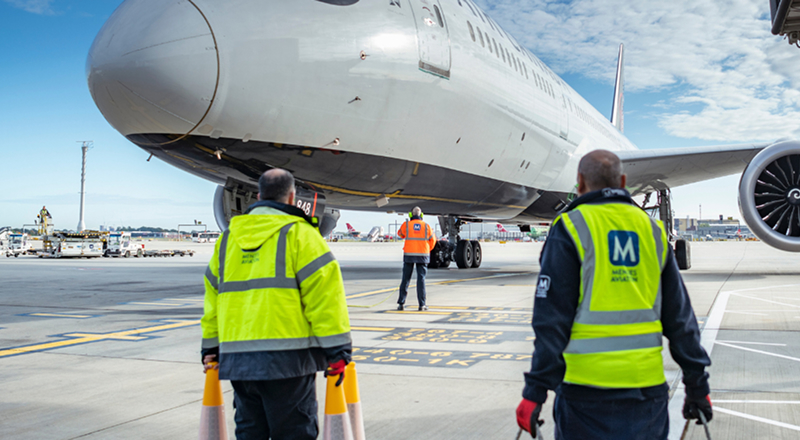Data Centers in the Middle East

Kuwait-based Agility Logistics Parks customers can log-on to view contracts and make payments.
UK MOD personnel can log-in to the GRMS portal to schedule household relocation shipments.
Kuwait-based Agility Logistics Parks customers can log-on to view contracts and make payments.
UK MOD personnel can log-in to the GRMS portal to schedule household relocation shipments.
Trade is an important aspect of Africa’s economic growth and development, helping the continent address numerous socio-economic challenges while opening up unprecedented opportunities.
Trade helps bolster economic diversification, reducing Africa’s overreliance on a few key commodities and sectors. It also encourages innovation and specialization and facilitates the exchange of goods and services both within the continent and with international partners.
Trade connects Africa’s nations to global markets, increasing their visibility and influence on the world stage.
As a result, trade has unfolded economic benefits for Africa, generating revenue for governments and businesses, creating job opportunities, reducing property, and fostering economic growth. It also helps stimulate foreign direct investment and enhances Africa’s access to technology and knowledge.
Despite these, Africa faces some logistics challenges that hinder its potential to fully benefit from its trade relations. Among these are the inadequacy of transportation infrastructure, customs and border procedures inefficiencies, and inadequate access to financial services and information.
In light of these issues, Africa is exploring initiatives for infrastructure development, including building better warehouses, to increase and facilitate trade in its region.
Warehouses are often overlooked components of the supply chain, but they are important in facilitating global trade. Especially in Africa, where logistics challenges hinder efficient trade, better warehouses are crucial to enhance trade in Africa through:
Efficient warehousing solutions can allow businesses in Africa to store their goods safely and reduce the risk of damage or spoilage. This is particularly important as Africa has a strong agricultural leg—better warehouses will allow farmers to store their produce and transport the supply to the market.
This waste reduction promotes price volatility, benefiting not only the producers but also the consumers.
Transportation infrastructure is a challenge in Africa that can be solved with better warehouses. Proximity to well-equipped warehouses can reduce transit times and allow businesses to move their products to the market more efficiently. This reduces transportation costs and satisfies customer demands, making Africa more competitive in domestic and international markets.
Warehouses can be equipped with advanced technology to improve quality control. For example, temperature-controlled facilities can maintain the quality of perishable goods and ensure that African products meet the high standards of international buyers. This further bolsters trade opportunities and boosts Africa’s reputation in global markets.
Improved warehouses can serve as consolidation points for small-scale producers. Such a setup allows these businesses, especially SMEs seeking to access broader markets, to benefit from economies of scale in transportation.
Further, warehouses located in prime destinations can act as distribution hubs to help streamline the flow of products across countries.
Recognizing these benefits, several warehouse providers have already set up their facilities in African nations, including Agility Warehouses in Africa.
Agility Logistics has a range of warehouses in various African countries, including Ghana, Mozambique, Nigeria, Cote d’Ivoire, and Egpyt. These modern facilities offer a regional distribution platform used by foreign and local companies for storage, assembly, and processing.
Our African logistics parks and warehouses deliver essential infrastructure to help companies reduce capital costs, shorten operational lead times, and de-risk entry and expansion into African markets.
Better warehouses can boost African trade, which also brings along a range of benefits in other areas. These include:
Better warehouses in Africa are contributing to environmental conservation through reduced food waste, efficient energy use, sustainable building practices, minimized transport emissions, and packaging optimization.
Modern warehouses in the region comply with environmental regulations and standards mainly through resource efficiency practices. As Africa continues to invest and upgrade its warehousing infrastructure, it has the potential to significantly contribute to global efforts towards sustainability and environmental improvement.
Better warehouses enhance logistics and trade efficiency in Africa by optimizing storage space, accelerating order processing, implementing advanced inventory management systems, improving security, maintaining product quality, integrating transportation management, and streamlining handling equipment.
As a result, these improvements are leading to faster order fulfillment and increased customer satisfaction—not to mention reduced operational costs for business operations and supply chain trading in Africa.
By optimizing space, reducing labor expenses, speeding up order fulfillment, minimizing transportation costs, improving energy efficiency, preventing product loss and damage, conducting predictive maintenance, and ultimately achieving supply chain efficiency, better warehouses are reducing costs for businesses and facilities in Africa.
These cost-saving measures contribute to the profitability and competitiveness of African businesses and supply chains.
Better warehouses employ various security measures, from container security and surveillance systems to cybersecurity and security training. These help warehouses protect valuable inventory and assets, as well as contribute to safe supply chains.
The result is enhanced trust with customers and partners, providing a secure environment for business operations.
Better warehouses maintain high compliance standards, ensuring the safety and quality of stored goods while supporting the integrity of supply chains. These enhance the reputation of African businesses in international trade and promote adherence to ethical and environmental regulations.
Through efforts that include reducing transit times, ensuring product quality, facilitating trade, providing distribution solutions, and ensuring compliance with transportation and regulatory requirements, better warehouses are vital in improving Africa’s access to markets.
Better warehouses improve trade in Africa, allowing businesses to access consumers from different nations, enhancing their competitiveness and supporting Africa’s economic growth.
Learn more about Agility’s warehouses in African regions on our website.